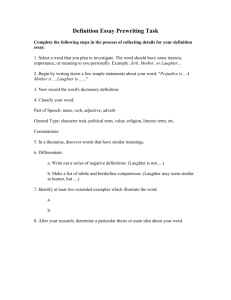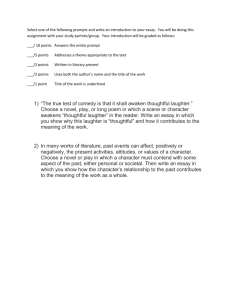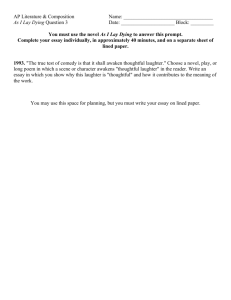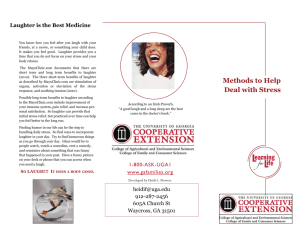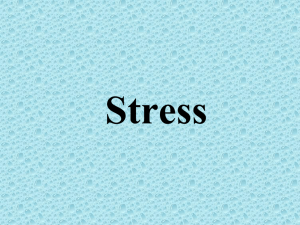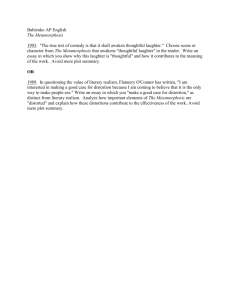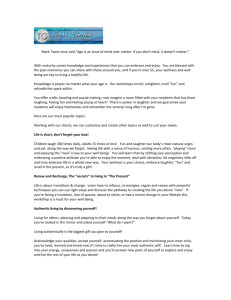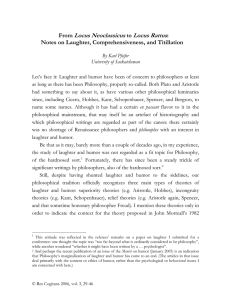“The patient sat there looking ill and asked, ‘Flu?’ The... bicycle actually’.” Aging Well With Laughter
advertisement
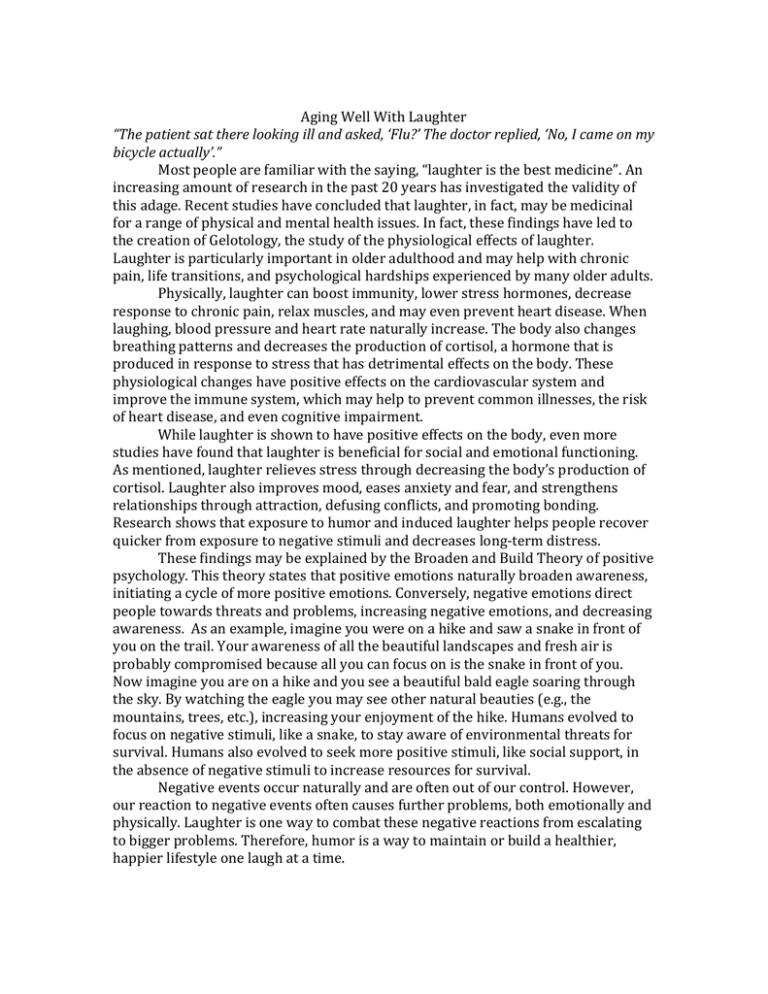
Aging Well With Laughter “The patient sat there looking ill and asked, ‘Flu?’ The doctor replied, ‘No, I came on my bicycle actually’.” Most people are familiar with the saying, “laughter is the best medicine”. An increasing amount of research in the past 20 years has investigated the validity of this adage. Recent studies have concluded that laughter, in fact, may be medicinal for a range of physical and mental health issues. In fact, these findings have led to the creation of Gelotology, the study of the physiological effects of laughter. Laughter is particularly important in older adulthood and may help with chronic pain, life transitions, and psychological hardships experienced by many older adults. Physically, laughter can boost immunity, lower stress hormones, decrease response to chronic pain, relax muscles, and may even prevent heart disease. When laughing, blood pressure and heart rate naturally increase. The body also changes breathing patterns and decreases the production of cortisol, a hormone that is produced in response to stress that has detrimental effects on the body. These physiological changes have positive effects on the cardiovascular system and improve the immune system, which may help to prevent common illnesses, the risk of heart disease, and even cognitive impairment. While laughter is shown to have positive effects on the body, even more studies have found that laughter is beneficial for social and emotional functioning. As mentioned, laughter relieves stress through decreasing the body’s production of cortisol. Laughter also improves mood, eases anxiety and fear, and strengthens relationships through attraction, defusing conflicts, and promoting bonding. Research shows that exposure to humor and induced laughter helps people recover quicker from exposure to negative stimuli and decreases long-term distress. These findings may be explained by the Broaden and Build Theory of positive psychology. This theory states that positive emotions naturally broaden awareness, initiating a cycle of more positive emotions. Conversely, negative emotions direct people towards threats and problems, increasing negative emotions, and decreasing awareness. As an example, imagine you were on a hike and saw a snake in front of you on the trail. Your awareness of all the beautiful landscapes and fresh air is probably compromised because all you can focus on is the snake in front of you. Now imagine you are on a hike and you see a beautiful bald eagle soaring through the sky. By watching the eagle you may see other natural beauties (e.g., the mountains, trees, etc.), increasing your enjoyment of the hike. Humans evolved to focus on negative stimuli, like a snake, to stay aware of environmental threats for survival. Humans also evolved to seek more positive stimuli, like social support, in the absence of negative stimuli to increase resources for survival. Negative events occur naturally and are often out of our control. However, our reaction to negative events often causes further problems, both emotionally and physically. Laughter is one way to combat these negative reactions from escalating to bigger problems. Therefore, humor is a way to maintain or build a healthier, happier lifestyle one laugh at a time.
